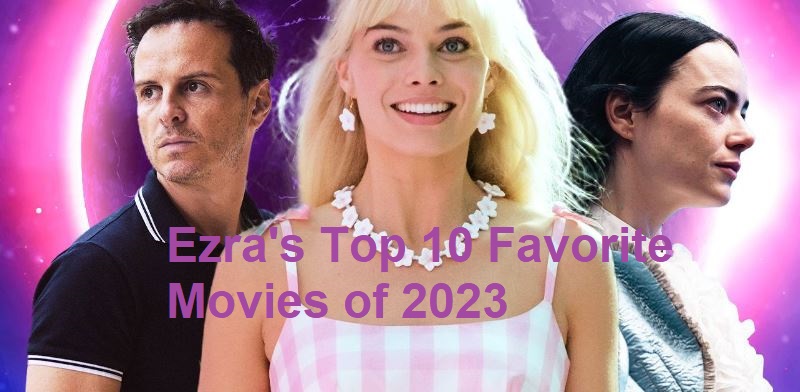
The Zone of Interest —There are easier, more enjoyable watches on this list, but none better or more unforgettable. Make no mistake, this shit is heavy. Jonathan Glazer’s groundbreakingly immersive descent into the banality of evil is the kind of movie that lives up to Lars von Trier’s famous quote, “A film should be like a rock in the shoe,” a cinematic stone that rattles around in your brain long after the viewing (the same could be said of another excellent 2023 feature starring Sandra Hüller, Anatomy of a Fall). The horrors of the Auschwitz prison camp are only briefly glimpsed, almost entirely from the other side of the garden wall—the blood washed down the drain from Rudolf’s boots by a Jewish servant, the smoke in the air and the ashes being spread by another servant in the Hösses’ yard to fertilize the soil—but the unseen violence permeates every frame. This movie took about ten years to make, and it shows. The attention to detail in both conception and execution is astonishing. It is a towering, undeniable work of art. I only hope I can get it out of my head sometime in the near future.
Beau Is Afraid—Beau is fucked, is what he is. Right from birth, when he is dropped by the doctor delivering him. As an adult, he lives in an urban hellscape straight out of the worst conservative’s worst nightmares, surrounded by chaos and violence, forced to run at top speed into his apartment building each evening in order to avoid the hordes of beggars, vagrants, thieves and murderers that plague the corpse-strewn streets. And that’s just where his epic journey begins. On a desperate quest to reach his mother’s home, Beau (Joaquin Phoenix, fully committed and bringing everything he has to the role, as always) goes from the near-apocalyptic inner city to a garish pink suburban hellhole, the kind of place that seems like heaven until you realize you’re trapped there, through a soothingly animated fable of his own possible alternate life, and inevitably to the ultimate nightmare revelation of all his buried family secrets. Writer-director Ari Aster (Hereditary, Midsommar) has made his funniest and most fascinating feature, an endlessly rewatchable journey through a tortured subconscious. Beau is a sad-sack for the ages, a perfect vehicle for all the family-based guilt and trauma Aster has been exploring since his first short film.
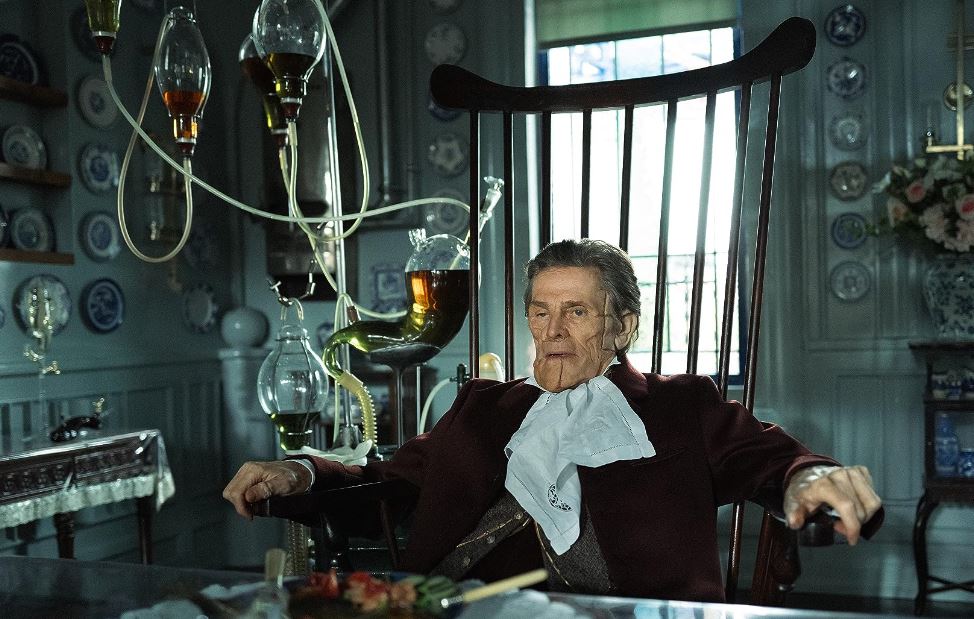
Poor Things —A feast for the eyes from the very first frame, Poor Things is one hell of a ride, a demented, riotously funny Frankenstein riff that positively crackles with energy and life. Bella Baxter (Emma Stone, reteaming with her director on The Favourite, Yorgos Lanthimos) is an impossibly loveable creation, all childlike innocence and impetuousness in an unabashedly randy adult body. Beginning on her adventure with the inveterate cad Duncan Wedderburn (Mark Ruffalo, in his best performance yet), Bella travels through a gorgeous steampunk fantasy of the world, learning and growing and doing lots and lots of “furious jumping,” as she names her favorite activity soon after discovering it with Duncan. Tony McNamara’s tremendously clever screenplay, adapted from the novel by Alasdair Gray, rivals his work on The Favourite for sharpness of wit, but there is more warmth in this one. The beauty of the production design (by Shona Heath and James Price) and Robbie Ryan’s cinematography cannot be overstated, but really every element of this unapologetically feminist fantasy, down to the smallest detail, is utter perfection. Now if you’ll excuse me, I must go punch that baby.

Barbie—Another unapologetically feminist tale of an innocent’s journey through an unfamiliar world, Greta Gerwig’s candy-colored delight of a movie may be a two-hour toy commercial, but so is The Lego Movie, which taught me almost a decade ago not to be surprised at how much I am capable of loving a two-hour toy commercial. It’s no slight to Barbie to acknowledge the debt it owes to that previous masterpiece of animation, but it is a testament to the quality of the movie that none of this rampant consumerism hindered my enjoyment at all. The cast is perfect, from the obvious choices of Margot Robbie and Ryan Gosling to Kate McKinnon in the role I never knew she was born to play: Weird Barbie, the one that got played with too hard and now she’s always in the splits. Gosling is especially funny in the many scenes he steals, a welcome return to the screen after a few years away, made slightly longer by the fact that I still haven’t seen The Gray Man. Barbie is not just a great movie, but a genuine cultural phenomenon that could help smash the patriarchy, especially once we all find out it isn’t about horses.
Oppenheimer—A new Christopher Nolan movie has been a grand affair ever since he took the reins of the Batman franchise in 2005, after his more humble beginnings as a director of the tight, entertaining neo-noirs Following, Memento, and Insomnia. After the wildly ambitious (and thoroughly frustrating) Tenet, he has returned with the grandest and most ambitious work of his career thus far, an instant classic from the moment it begins. Hoyte Van Hoytema’s impeccable cinematography captivates the eye and creates a stunning mental connection from the drop of potassium cyanide rolling down the side of a green apple to the fire engulfing the edge of the planet in the apocalyptic final frame, capturing the beauty of death and destruction from the micro to the macro. Ludwig Göransson’s eerie, tense score helps to sweep us along through the sprawling historical narrative, and of course the tremendously stacked cast is fantastic. Cillian Murphy finally headlines a Nolan film as J. Robert Oppenheimer, and he certainly anchors the film with his haunted, determined performance. Incredibly, the hour or so after the big test explosion the movie had been leading up to is even more compelling, as the intricacies of the professional and personal rivalry between Oppenheimer and Lewis Strauss (Robert Downey Jr.) are laid bare. Strauss is the Salieri to Oppenheimer’s Mozart, to make a comparison to the great Amadeus, one of my favorite movies to ever win a bunch of Oscars, as Oppenheimer seems poised to do as well.
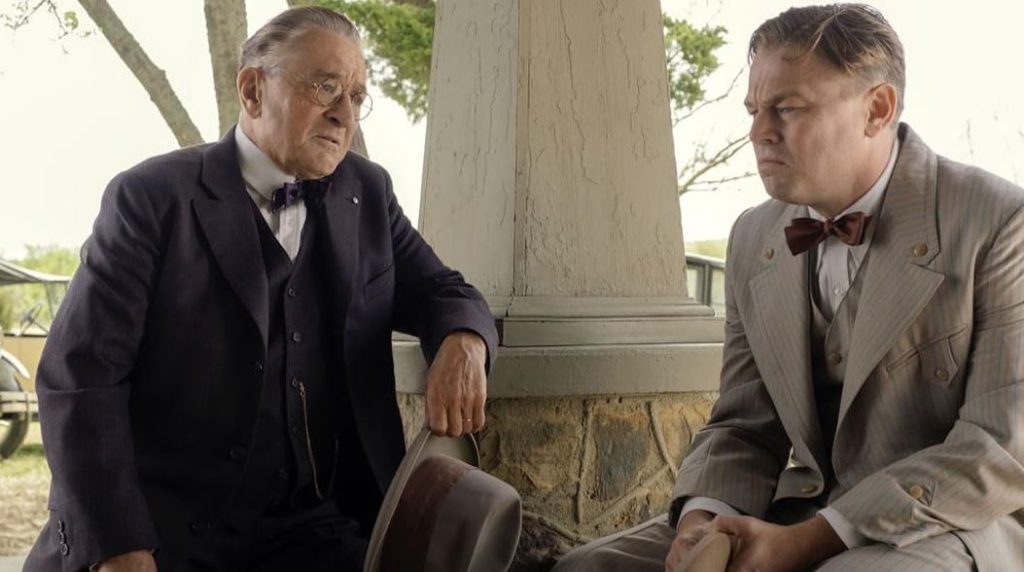
Killers of the Flower Moon —Five decades after Mean Streets, Martin Scorsese still makes the best fucking films. How does he follow up The Irishman, a career-defining masterpiece that not only reunited him with Robert De Niro, Joe Pesci and Harvey Kietel, but also brought him together with Al Pacino for the first time, allowing all four actors to do some of their best work in years? How about another masterful epic that brings his two longtime favorites, De Niro and Leonardo DiCaprio, together in a Scorsese picture at last? Marty treats this longtime passion project with the gravity it deserves, assembling a stacked cast and his usual team of ace professionals to illustrate one of the worst chapters in American history, the brutal and systematic murder of newly oil-rich Osage people in 1920s Oklahoma. The violence is every bit as abrupt and upsettingly casual as in The Irishman, and De Niro is even more villainous. DiCaprio is at his best in a role outside his usual comfort zone, and Lily Gladstone delivers a remarkable breakthrough performance of great emotional range. Like The Zone of Interest, this is a sure-handed portrait of how commonplace and ordinary evil can be.
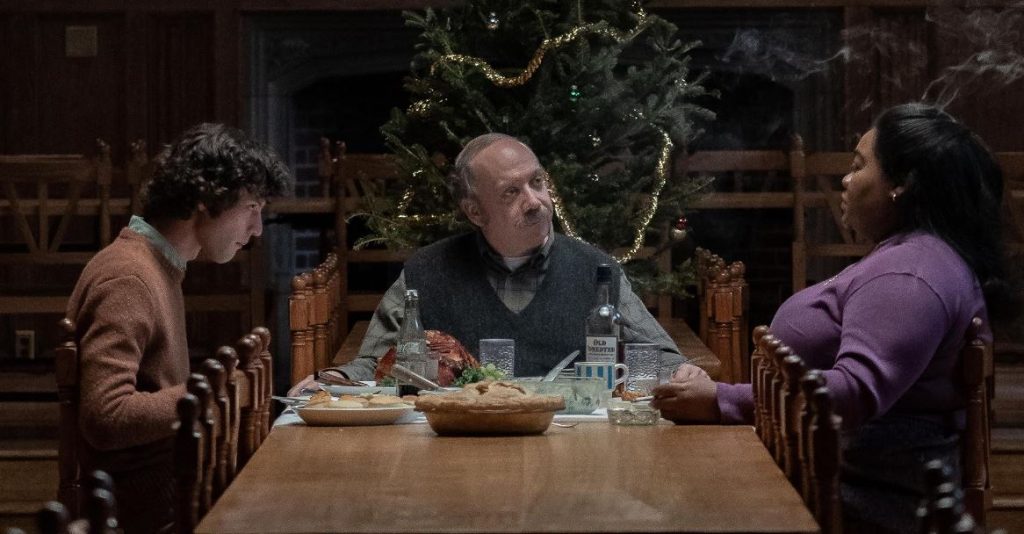
The Holdovers —A perfect blend of caustic wit and deep, well-earned warmth, Alexander Payne’s loving ode to the cinema of the 1970s is a new Christmas classic I’m sure to revisit over and over again. I was sold from the moment in the trailer when, upon hearing a student’s protest that he “can’t fail this class,” Paul Giamatti’s wonderfully acerbic history teacher Paul Hunham replies, “Oh, don’t sell yourself short… I truly believe that you can.” David Hemingson’s screenplay is full of gems like that, and the movie—with its vintage R-rating card and faux-1971 copyright date—really does feel like a lost gem from that era, perhaps directed by Hal Ashby. The emotional impact is timeless, though, and Da’Vine Joy Randolph and newcomer Dominic Sessa shine right alongside Giamatti at his best. One of the funniest and most heartwarming movies of the year.
May December—With its repetitive, insistent score by Marcelos Zarvos and crisp, colorful images by cinematographer Christopher Blauvelt, the latest feature from Todd Haynes has an intentional soap opera quality to it, a reflection of the screaming tabloid nature of the scandalous story at its core. That is not, of course, a dig. The aura of a melodramatic thriller is one of the most compelling things about this highly engaging movie, but Haynes and screenwriter Samy Burch are more interested in their characters than the sort of plot machinations you might expect. It’s a slippery examination of the two-way street between life and art, centered around some very uncomfortable subject matter inspired by a notorious real-life story and anchored by flawless performances from not only its two leads (Julianne Moore and Natalie Portman, both never better), but also Charles Melton and the rest of the supporting cast. The final scene shares a haunting quality with the famous conclusion of Sunset Boulevard, a subtle blurring of the distinction between performance and reality.
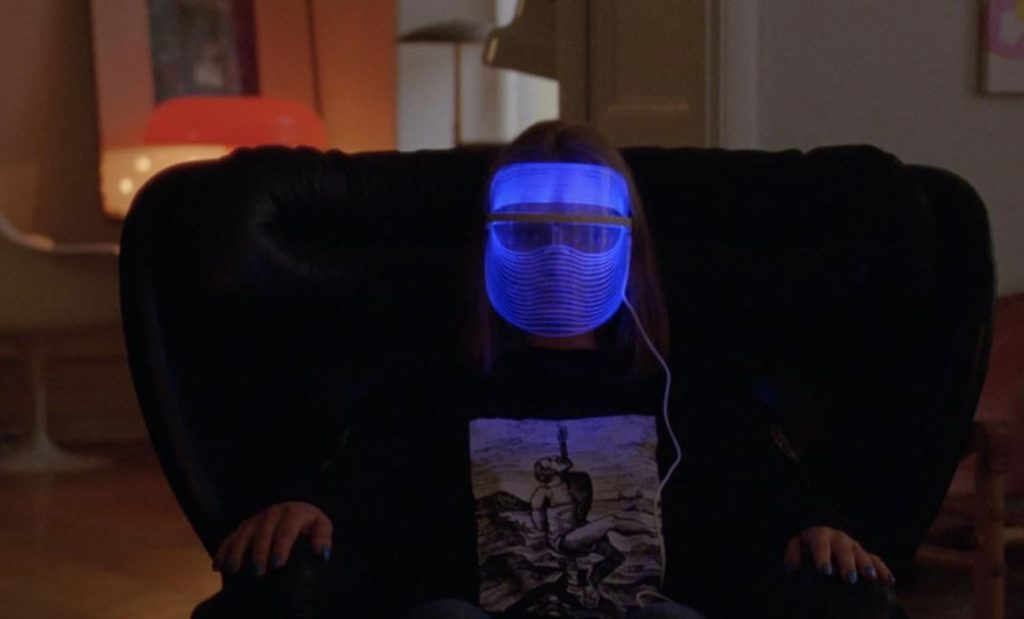
Sick of Myself—Writer-director Kristoffer Borgli released this movie and his also excellent English-language debut Dream Scenario in the same year, which is like the arthouse dark-comedy equivalent of DMX dropping two platinum albums in 1998. I was tempted to pull a cheat like I did last year and make the two a tie, thereby leaving room for a potential 12th-place spot (probably either BlackBerry or the Willem Dafoe one-man show Inside, if you really want to know), but as great as Dream Scenario is, Sick of Myself is just more raw and unsettling. Signe (Kristine Kujath Thorp) is one of the movies’ great unlikeable characters, and her boyfriend Thomas (Eirik Sæther) is arguably even worse; at any rate, he gets more attention, and that is something Signe cannot abide. The struggle between fame and anonymity is a major theme in both of Borgli’s 2023 features, but the lengths to which Signe goes to be noticed is truly the stuff of horror. Really, really funny horror.
Infinity Pool—David Cronenberg is one of the all-time great horror filmmakers, and one of my favorites in any genre, which may be why I have been at least subconsciously reluctant to see the work of his son, Brandon. After allowing two previous features (Antiviral and Possessor) to pass me by, I finally saw the third movie from Cronenberg the Younger and was pretty blown away. Infinity Pool has all the disturbing existential quagmires and gut-churning body horror one would hope to see from the progeny of a master, with his own unique visual flair and carefully honed sense of aesthetics. Having now seen and enjoyed his previous two features, Infinity Pool still stands as my favorite of his work so far, a thoroughly unnerving look at the decadence and privilege of wealth and what it even means to be human if there are no true consequences. It’s like Triangle of Sadness meets Blade Runner, with a lot more blood.
Leave a Reply